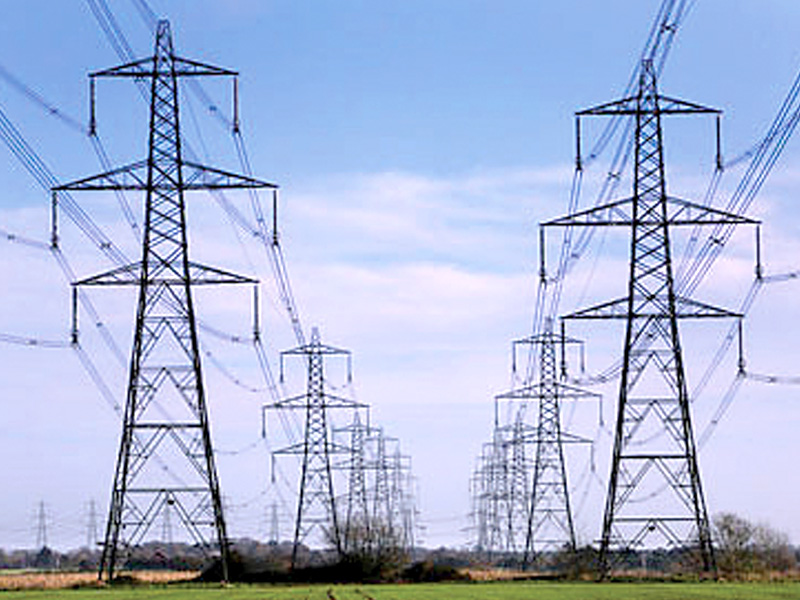
While showing confidence in Tajikistan’s moves to export surplus power to Pakistan and Afghanistan under the Central Asia South Asia (CASA) 1000 project, Washington and Kabul have committed millions of dollars to fund community support programmes in war-torn Afghanistan in an apparent move to ensure the security of transmission lines.
In a meeting of World Bank’s executive directors on March 27, participants said the Afghanistan Reconstruction Trust Fund and the United States would provide $40 million to fund community support programmes in Afghanistan. Separately, the US government has committed $15 million in grant resources, sources say.
An official of Tajikistan Embassy told The Express Tribune that the Tajik president had played a key role in making the power supply project a success, which would connect neighbouring countries including Tajikistan, the Kyrgyz Republic, Afghanistan and Pakistan and bring prosperity to the regions.
He said the project had taken a leap forward following approval of financing by the World Bank, adding it would help address energy shortages in Pakistan and support growth of its faltering economy held back by prolonged power outages.
CASA-1000 is a transformational project that will give a much-needed boost to energy security and improve connectivity and trade across two regions at a critical time.
In the meeting, the World Bank executive directors noted that the Kyrgyz Republic and Tajikistan had abundant hydroelectric power, but their power generation capacity exceeded national needs only during summer and was insufficient during winter.
The export of surplus electricity during summer would help the two countries generate revenues they needed for priority energy sector investments, particularly to cover energy shortages during winter, they said.
Tajikistan will export electricity over a five-month period from May to September in an effort to maintain the seasonal pattern of water flows and power generation in winter.
“Regarding concerns about power deficit, it is our assessment that there is sufficient surplus available to establish economic viability of CASA-1000,” documents quoted the executive directors as saying.
Loans, grants
The executive directors approved a grant of $316.5 million for Afghanistan and a loan of $38.25 million and a grant of $6.75 million for the Kyrgyz Republic.
They also gave the go-ahead for a loan of $120 million for Pakistan and a grant of $45 million for Tajikistan for the CASA-1000 electricity transmission and trade project.
The project will support the construction of transmission infrastructure and trading mechanisms to enable the trade of 1,300 megawatts of electricity between Central Asia and South Asia.
The World Bank was informed that in the event of any dispute, the stakeholders had already agreed on a well-defined set of dispute resolution mechanisms to be embedded in commercial agreements for CASA-1000, in line with the established practice for cross-border projects.
The countries associated with the project planned to provide infrastructure contracts through international competitive bidding and reputed contractors were expected to participate, the meeting was told.
In a bid to strengthen the implementation capacity, the countries have been supported by international legal advisers for commercial negotiations as well as the International Finance Corporation (IFC) for carrying out the procurement of infrastructure and consultancy contracts.
The project design includes support to strengthen the countries’ capacity by appointing international engineers, who will assist in supervising the project and managing large infrastructure contracts.
The meeting noted that the release of World Bank funds would be milestone-based and payments would be made directly to the contractors and the countries would jointly monitor progress on all activities of the project.
Published in The Express Tribune, March 30th, 2014.
Like Business on Facebook, follow @TribuneBiz on Twitter to stay informed and join in the conversation.
COMMENTS (3)
Comments are moderated and generally will be posted if they are on-topic and not abusive.
For more information, please see our Comments FAQ

















A stable Afghanistan is in Pakistan's interest .. but when you exclude the drug trade Afghanistan doesn't have a sustainable economy. If Afghan economy can be propped up with transit fees for energy (pipeline, transmission lines etc) then ultimately Pakistan and the region will benefit.
CASA-1000 is the biggest blunders of the Pakistani government. American dream to make Pakistan Dependent on energy supplies is coming into being. Its major line will pass through Afghanistan and it will cost more than a Billion US Dollars to construct. Moreoever Pakistan will give millions of Dollars of Fees to Afghanistan on an yearly basis and Afghans can cut off this supply to blackmail us whenever necessary. Given the history of Afghan Backstab how Pakistan think such project will ever work??
Also all over the World 1 Million US Dollars Per MegaWatt is average the cost of any electricity generation project and rather than spending such a huge amount on this project Pakistan should reject this project and concentrate on local generation only.
Just see this map. How rather than using the Tajik Border with Pakistan they are using Kabul based long route to make Pakistan fully dependent in future. http://www.casa-1000.org/MAP.jpg